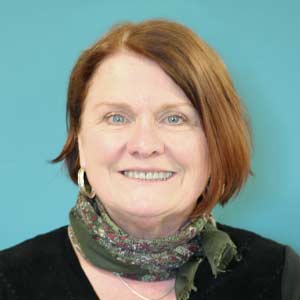by Sandi Coyne, Program Director, Master of Science in Organizational Leadership
“Two roads diverged in a yellow wood,
And sorry I could not travel both
And be one traveler…”
wrote Robert Frost in the poem many of us had to memorize at some point in our careers as students.
The value of graduate education is a big question today, particularly when considering the student debt dilemma. And while that is an important factor in pondering “the road not taken,” perhaps cost is not the only way to measure the value of a graduate degree.
Forbes magazine shares that, “According to 2013 data from the U.S. Department of Labor, the unemployment rate for individuals holding a master’s degree was only 3.4% in 2013, compared to 6.1% for all workers. Given the knowledge orientation and complex, global nature of today’s economy, employers very often demand a master’s degree for many of their fastest growing professional and leadership roles.”
So many graduate degree programs exist now that students are understandably concerned about making the right choice for them and for their careers. Often, the first degree mentioned as a platform for career improvement is an MBA, a long-standing option that provides a vehicle to appreciate and potentially craft experience in finance, accounting, management, or marketing. The truth is, the focus of an MBA is on elements of business. Though students work diligently through assignments, the central focus is not on the student, but on “business.”
According to the Bureau of Labor Statistics as reported in US News and World Report, jobs in management project an increase of 6 percent between 2014 and 2024; this should result in the creation of roughly 505,400 new positions nationwide.
What do all of these positions require? These positions will depend on — and, in fact, demand — leadership.
Leaders transform workplaces! Individuals who can marshal resources as well as inspire workers to reach the lofty goals of the organization are in high demand. If you cannot lead people through a deft combination of soft and hard skills, it is very possible you are not the candidate for a position you might truly want.
Analysis suggests people who want leadership positions need to explore and develop the requisite skills. They are likely perfect candidates to pursue a leadership degree, forge a path to leadership positions, and even earn a corner office. In an organizational leadership degree program, the student delves into elements of leadership and examines not only leadership conceptually but also leadership personally.
What are the top six reasons to select a leadership graduate degree – such as a MS in Organizational Leadership (MSOL) – over an MBA?
- Discover your style
Leadership is not a “one size fits all” model. However, what style, approach, or model really fits an individual who does not have a role model or a mentor? Leadership learning in a graduate environment often provides people with a chance to work with a mentor or an advisor to best promote next steps!
- Hard numbers on soft skills
Soft skills have a place at the table! A recent report by iCIMS Hiring Insights finds that 94% of recruiting professionals believe employees with strong soft skills are more likely to be promoted. The report is based on an online survey of 400 HR/recruiting professionals conducted by Wakefield Research between June 22 and July 3, 2017. The report finds that 58% of recruiting professionals believe soft skills are more important for leadership and management positions than for entry-level positions. For senior leadership, recruiting professionals rank problem solving (38 percent) as the most important soft skill, followed by oral communication (26 percent) and adaptability (17 percent). Leadership degrees focus on problem solving, oral communication, and the ability to be flexible.
- Focus on people
MBAs focus on the elements of business, not people. From finance and accounting to marketing and management, the MBA introduces and develops a strong familiarity with the aspects of business operation. Master of Science in Leadership degree programs have a single focus: the student and the development of the ability to lead.
- Envisioning the future
The MSOL program develops students mid-career, embracing what they have accomplished, providing insights into leadership as both an opportunity and a structure, and envisioning how students can develop into the leaders they wish to be!
- Making peace with compromise
A leadership degree introduces negotiation and continues the process throughout the degree. Negotiation in this environment promotes understanding and a growing appreciation of how to reach consensus and how to compromise! Leaders with negotiation experience are better prepared to represent their company and advance their own initiatives.
- Making friends with conflict
Conflict is an inherent part of the process when working with people. Leaders have to be prepared to deal with the conflicts that develop in normal (and not-so-normal) business days! Developing effective conflict response skill sets is an essential component of a building a sustainable business model and a critical element of the study of leadership! Conflict response is also part of the leadership study in an MSOL degree.
Of course, there is a place for practitioners who need an MBA degree to complement their skills and desire to work in a specific business area. The workplaces of today and tomorrow — with multigenerational approaches, new technology, and continued client expectations — mean an MSOL is a future directed degree!
As Robert Frost concludes
“Two roads diverged in a wood, and I—
I took the one less traveled by,
And that has made all the difference”
Interested in learning more about earning a master’s degree in Organizational Leadership
https://www.goodwin.edu/majors/msol/

Sandra (Sandi) Coyne-Gilbert is an accomplished leader with experience in both the education and nonprofit sectors. Coyne-Gilbert specializes in working with adult learners and is enthusiastic about instilling a passion for lifelong learning in her students. Her work with at-risk and marginalized groups provided her with unique insights into the power of education for people in transition. Beyond the educational field, Coyne-Gilbert also has experience in marketing and nonprofit leadership. Most notably, she was one of the driving forces behind the development of the Ronald McDonald House in Springfield, MA. Coyne-Gilbert looks forward to bringing her experiences to the classroom as program director for the master’s degree in Organizational Leadership at Goodwin University.

